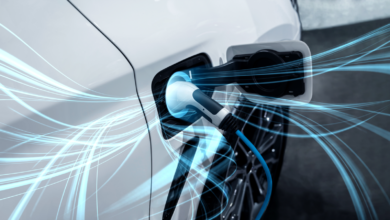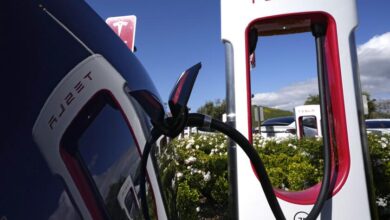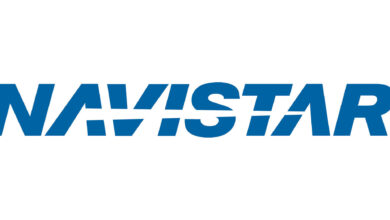How one Weymouth station beat the equipment backlog
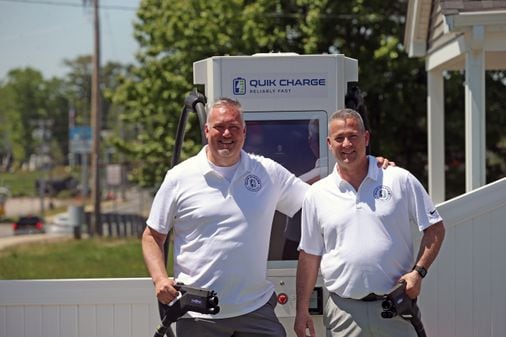
Most other EV charging projects in the state, however, have been going the conventional route — and not getting very far, largely because of a vexing shortage of a basic but crucial piece of equipment: high-voltage transformers. Wait times for the hulking gear can stretch more than two years, delaying a critical part of the state’s strategy to combat climate change that relies on persuading almost 1 million drivers to switch to EVs, 10 times the current level, by 2030.
And with other parts of the climate plan also relying on electrification, the transformer shortage threatens to short-circuit the entire effort at a time when scientists say the warming of the planet is accelerating.
In 2021, Massachusetts started a program to subsidize construction of 226 privately owned fast chargers, but almost three years later only 16 were in operation — and 10 of those in a single parking garage in the Seaport. The state is also getting about $60 million for charger installations under the 2021 federal infrastructure law, but hasn’t funded a single station yet.
The Weymouth charging station uses technology from a West Coast startup called Electric Era. Founded by former SpaceX engineers in 2019, the company argues its gear can be installed in many more locations since it doesn’t require high-voltage connections and avoids reliability problems that have plagued much of the EV charging industry so far.
“One of the challenges with putting in charging stations is right now they are crazy consumers of power and the cost of putting in infrastructure is quite significant,” said Sam Reineman, Electric Era’s chief technology officer. “Basically, we’re using batteries to help solve that problem.”
The Weymouth station is one of the first in operation for Electric Era and its first in New England.
The battery can be recharged by conventional (single-phase) transformers, which utility National Grid added to a pole across the street. The gray, barrel-shaped transformers, commonly seen hanging off utility poles, are not in short supply, unlike higher-voltage ones required for fast-charging stations without a battery. Stringing a wire across the two-lane state roadway to connect to the charger required installing a new pole and curb alongside the charging station. That meant getting permission from state and town authorities.
But requirements for building permits and other paperwork in Massachusetts are “not horrific compared to some of the other places we’ve done stuff,” said Gary Lavoie, vice president of construction for Ward and Kelcourse’s contractor, Inovis Energy. Approvals for building EV stations in New York, Virginia, and Texas were harder, he said.
Ward and Kelcourse did not participate in either of the large government subsidy programs, but did get support from National Grid to cover the cost of electric infrastructure upgrades, and tax credits for locating the station in a low-income “environmental justice” community. The aid covered about half of the roughly $250,000 total construction cost, Ward said.
Most other EV charging-station projects in the state use traditional equipment without batteries, albeit from larger and more established manufacturers.
“The cheapest way to do it is definitely to connect right to the grid at high voltage,” said Kenneth Gillingham, a professor of economics at Yale University who has studied the EV transition. “But there are a lot of locations where there are no high-voltage lines around.”
The state started accepting applications for its subsidy program in March 2021 and about a year later approved plans for 226 chargers at privately owned sites such as an Applegreen convenience store in Springfield, a Shell gas station in Canton, a Burger King in Bridgewater, and a Pride convenience store in Chicopee.
Recipients got $50,000 per charger, which were supposed to be up and running within two years of signing contracts with the state, but almost none has met the deadline. Developers for about three-dozen chargers have since pulled out of the program, mostly because it turned out a site couldn’t get a sufficient power connection from the grid or the sponsors lost interest.
Another 60 chargers have gotten extensions from the state, while 115 chargers are in process, according to data in January from the state Department of Environmental Protection. The agency “is committed to supporting the state’s electrification of the transportation sector,” spokesman Ed Coletta said in a statement to the Globe. “We are working closely with … grantees to ensure we get charging stations online as quickly as possible.”
Global Partners LP, which owns more than 100 gas stations in the state, is one of the few award-winners with an EV charging station in operation. It’s in the parking lot of an XtraMart convenience and gas station on Providence Street in Worcester. (Global has another starting construction in Hopkinton and is completing permitting for one in Billerica.)
Global applied under the state program for just four of its locations to test the EV market, said James Cater, its senior director for innovation and sustainability. The four sites had sufficient parking space, convenient amenities, and — most importantly — access to 480-volt power supply. The state grant program also incentivized placements in low- and moderate-income areas.
Said Carter: “480-volt power doesn’t necessarily grow on trees.”
Global’s experience is typical of EV station developers in the state program facing delays. Drawing up contracts with the state, obtaining permits and permissions, and working with utilities all took time. But the biggest hurdle has been getting the transformers.
“We’re still seeing timelines a year to two years, in some cases, for delivery,” Cater said. “It’s a little disheartening, especially when you’re trying to build these things out.”
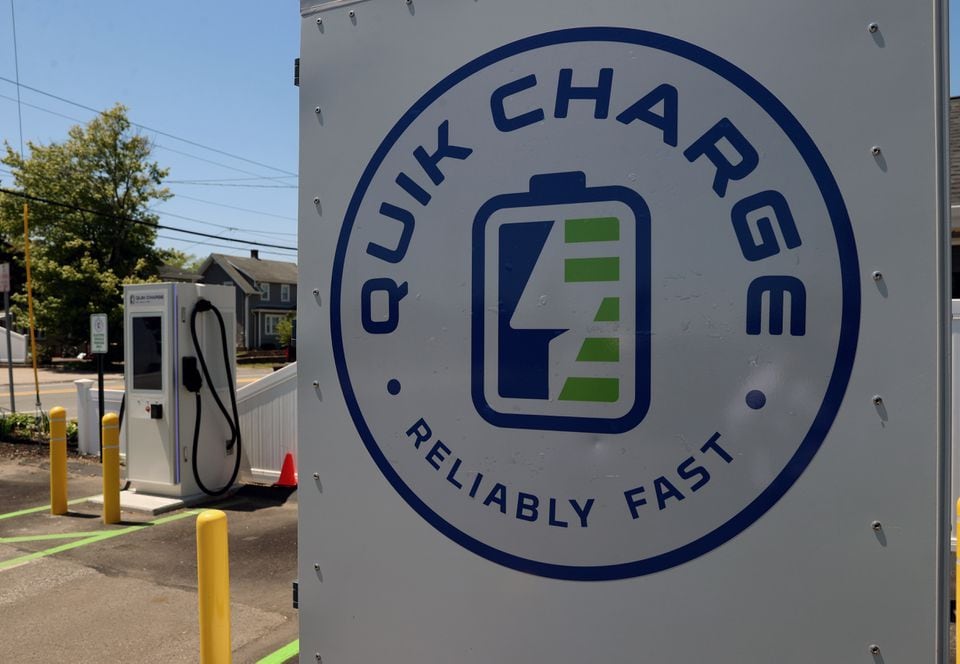
The battery-based approach has not appealed to Global and most other large charging station developers, including Tesla and Electrify America. They’re not convinced battery stations are worth the higher cost and are wary of relying on small startups; an Electric Era rival called FreeWire laid off more than 100 workers in May.
A typical DC fast charger costs about $50,000 per port but a battery-powered one can be up to double the cost, according to a 2023 study by the Institute of Transportation Studies at University of California, Davis.
“It sounds great in concept,” Cater said. “My initial issue with it is: Does this pay back? And is this more of a hassle because now I have two pieces of technology instead of one?”
Electric Era said upfront costs for its systems are only 20 percent to 50 percent more than conventional systems and are cheaper to install and maintain. Battery systems can also minimize additional utility charges based on the maximum amount of electricity used during a month, known as demand charges. But Massachusetts has sharply reduced demand charges for EV stations.
Kansas-based EV station developer HiON is developing about 20 sites in Massachusetts in parking lots of Burger Kings that are backed by the state’s subsidy program. Transformer shortages and utility wait times have delayed the buildout, chief executive Jim Frank said. But adding big batteries or solar panels on site would be too expensive, he said.
“If I did that at every [site] right now, we’d only be putting out a fraction of the ports and we would run through an awful lot of important build capital,” Frank said. “The key is that we build out the infrastructure right now with the capability to layer on those technologies when it’s time.”
As for the federal infrastructure bill, the Massachusetts Department of Transportation recently finalized contracts with three firms, including Global Partners, to build stations along major highways. New stations are not likely to come online for at least a year.
The battery-powered Weymouth station charges 43 cents per kilowatt-hour of power, in line with other fast-charging stations in the area, although a ChargePoint station in Scituate charges 35 cents.
Ward said he is willing to experiment with pricing and hopes to draw more business as EVs become more popular. “I’d love to own a hundred of these,” he said.
Aaron Pressman can be reached at aaron.pressman@globe.com. Follow him @ampressman.
